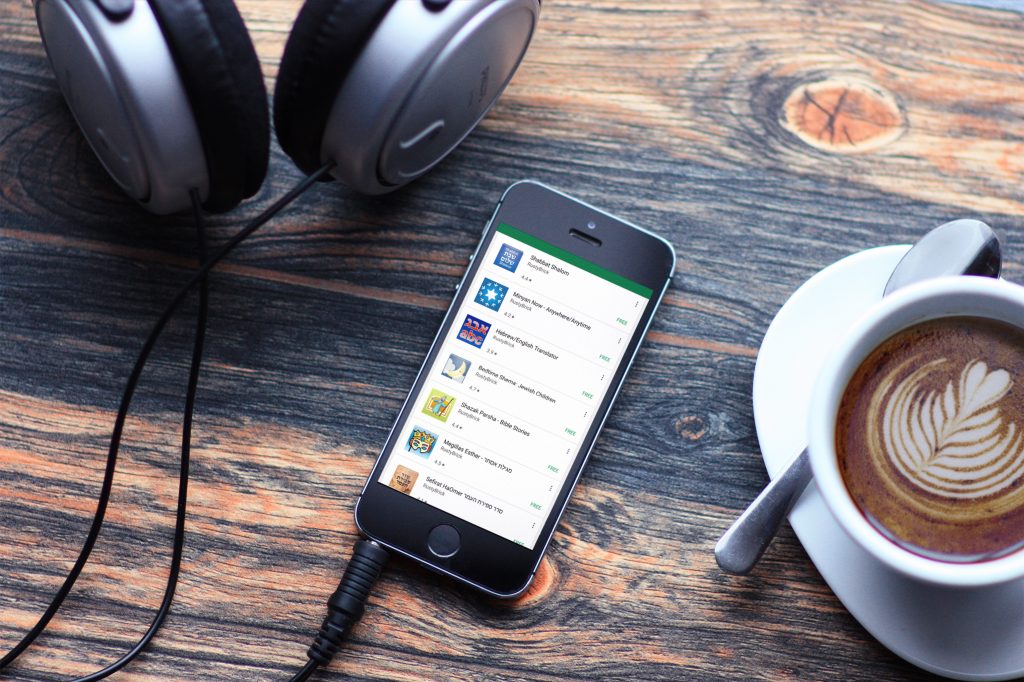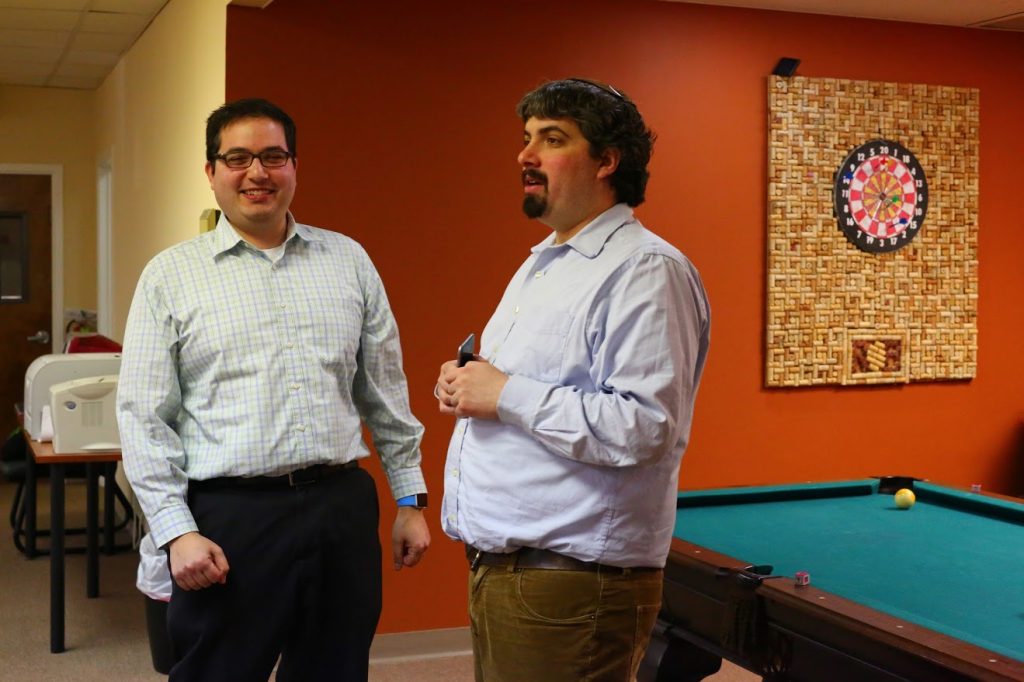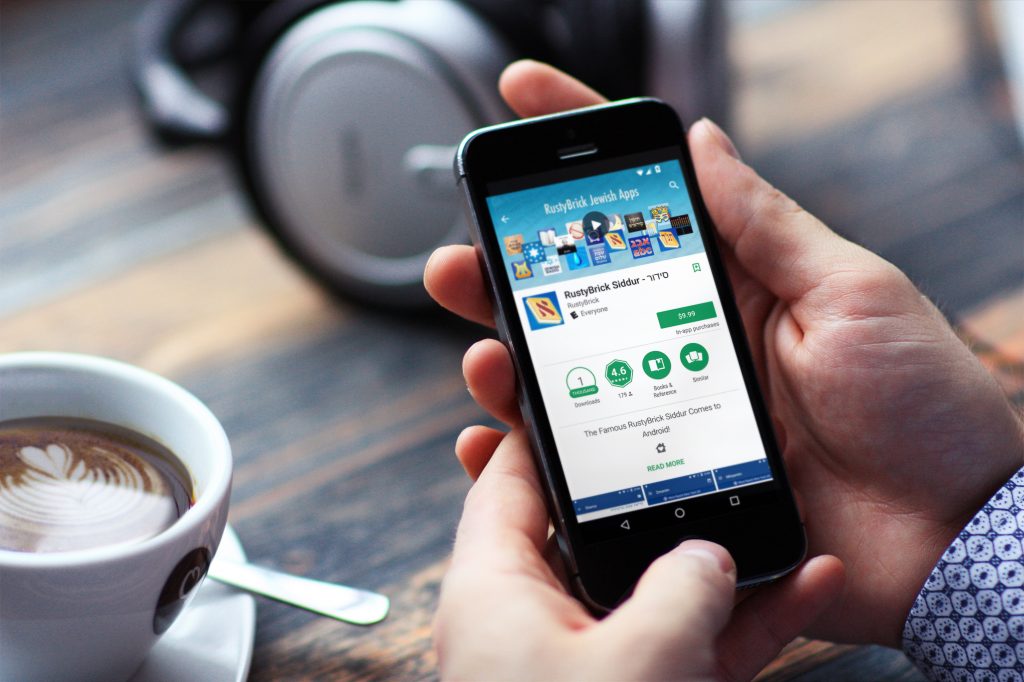
It almost seems like a misnomer to call a Smartphone a phone.
On any given day, I use my iPhone to wake me up, tell me the day’s weather, WhatsApp my kids, run a Twitter feed for one of my clients, take pictures, deposit checks, and act as my trusty navigator.
Oh right, some days I also use it to make an actual phone call or two.
We Smartphone users love our little handhelds, but what makes them so indispensable to our day_ to_ day lives are the apps that allow us to customize our phones to be like our little Harry Potter house elves, doing our bidding, and hopefully, simplifying our lives.
It seemed a no brainer that as apps began becoming more and more a part of our lives, that someone would come along and create apps catering to the Jewish community; indeed, there are plenty of apps out there tailored to our religious lifestyle. My Tehillim app may well be the most used app on my phone, giving me the opportunity to say a kapitel or two or ten while waiting on line. I also have a siddur app, one that gives me a rundown of nearby kosher eateries, and even a Hebrew translation app.
While there are a number of developers out there creating Jewish-themed mobile software, the undisputed leader in the Jewish app market is Rockland County-based Rusty Brick, a software firm run by Ronnie and Barry Schwartz, twin brothers who live in the Monsey area.
Teens on a Mission
The Schwartzes first made their mark in the software world in 1994 when they were just14 years old. Both were students at Torah Academy of Bergen County when Ronnie landed his first job in the software world, creating a basic online home for Glatt Wok, a Chinese restaurant near Monsey. While most boys his age were busy with sports, Ronnie decided to start his own software business, using his initials to come up with the name Rusty Brick.
Ronnie spent the summers of his teen years working for tech companies, designing systems to organize healthcare information for a company called MediVault and training employees to use and update a company internet site at Pitney Bowes’ world headquarters in Stamford Connecticut. The twins headed in different directions when it came time for college, with Ronnie earning a degree in computer science from Ramapo College and Barry graduating from City University of New York’s Baruch College with honors.
There was no doubt that a flair for software design ran through not just Ronnie’s veins, but Barry’s as well. A self-proclaimed “search engine freak” who now lectures internationally on the topic, Barry proposed to his wife, Yisha, through the Ask Jeeves search engine.
In its earliest days, Rusty Brick devoted its efforts to building web-based programming solutions, creating software solutions for doctors, and constructing calendaring software for hospitals. Even today, the company’s primary service is offering clients custom web and mobile software, but as the world of technology continued to evolve at a rapid rate, changes were in store for Rusty Brick.
The Advent of Kosher Apps
Fast forward a decade, and suddenly, smart phones were everywhere, including in the hands of Barry Schwartz, who found himself longing for a siddur app after Apple’s game changing Smartphone hit the market. As is so often the case, necessity became the mother of invention and Rusty Brick began work on a full featured smart siddur that would be simple, intuitive and easy to use.
“It was a smart siddur that told you what you needed to say on any given day,” said Barry. “There was nothing like it available on the market.”
Like many other Rusty Brick products, the siddur has evolved, giving users the ability to customize their font size, identify which direction is mizrach, find the location of the closest minyanim, determine relevant zmanim for their location, choose between three different nusachim and also have access to a full calendar. While it isn’t one of Rusty Brick’s many free apps, Schwartz said that the siddur, which costs $9.99 to download, is Rusty Brick’s most widely used app.
The siddur’s popularity was a clear indicator that the market was ready to embrace Jewish apps and Rusty Brick followed up with a slew of additional products. Some, like the tefillin mirror that helps the user align his shel rosh directly to the center of his forehead, lean more towards the novelty side. Numerous others are more hands-on, including a sefiras haomer calendar, a Hebrew English translator and the Shabbat Shalom app, which provides weekly candle lighting times for any location. (Note to users: make sure you are checking candle lighting times for your current location and not one you were at last week. I can tell you from experience that is not a mistake you want to make!)

Another no-cost game changer from Rusty Brick is Minyan Now.
“Let’s say you’re in a stadium or an airport and you need to get a minyan together,” Schwartz said. “By using Minyan Now, you can connect with other people on the app in the same place and get a minyan together.”
Understanding that kids often use apps as often as their parents, Rusty Brick created their whimsical Bedtime Shema app, and their interactive Shazak introduces kids to the weekly parashah in a fun way with adorable animation and downloadable coloring pages.
Rusty Brick has been featured in the secular media on several occasions, with the Schwartzes profiled on both the front page of the local Rockland County paper as well as on television, writing Jewish apps brings with it certain challenges. The notion of time alone can take on different nuances when dealing with halachic matters when an hour doesn’t consist of sixty minutes, but rather one twelfth of the total time between sunrise and sunset.
“We have to make sure everything is technically correct,” explained Barry. “The zmanim have to be 100 percent and accurate and the davening has to be right. We don’t want people doing the wrong thing.”
Cultural sensitivities can be another issue and one that often brings with it hard feelings. After getting complaints that Hallel wasn’t included in davening on Yom Yerushalayim, Rusty Brick’s developers added in a setting that lets users make that decision on their own.
“We also had some women who were upset that they were not ‘counted’ in our Minyan Now App,” said Schwartz. “That was a tough one to deal with.”
Large Scale Game Changers
Undoubtedly, Rusty Brick’s largest foray into the world of Jewish software is the ArtScroll Digital Library, which debuted in 2012 with the full Schottische Talmud. Originally created for the iPad, the only device at the time that had the ability to support the hyperlinks and connections needed to use the many nuances of the library, the app was released in time for the 12th Siyum Hashas. Since then ArtScroll’s digital library has grown to include a siddur, Kitzur Shulchan Aruch and Mesilas Yesharim for iOS platforms, Android devices and Kindle Fire, condensing an unbelieving wealth of Torah knowledge into an incredibly small package with a stunning number of features. And in an interesting twist, the ArtScroll Digital Library does not work on Shabbos.
ShulCloud, a cloud based synagogue management platform, is another unique product. Combining elements of the customer relationship platform Salesforce with shades of the ever-popular QuickBooks, ShulCloud gives shuls the ability to manage their accounts receivables, send out emails, and create paper communications while also maintaining a membership database and managing holiday seating. Launched approximately six years ago, ShulCloud is being used by synagogues worldwide and just recently acquired its 613th active client.
“It literally can run the whole operation for you and has really taken off in terms of serving the Jewish market,” said Schwartz.
The Schwartz twins, both Rockland County residents, have grown the West Nyack based Rusty Brick to a company that boasts over twenty employees. Like other software firms, they have developers, engineers and other tech people on staff, but taking a step outside the box, they also have a rabbinical advisor, Rabbi Adam Schwartz, who offers halachic guidance on the company’s Jewish apps.
As always, Rusty Brick continues to innovate and there are always new apps in the making. Schwartz preferred not to share details of his next big project, but said that it would likely have far reaching ramifications that would be of tremendous benefit to many.
While the Jewish apps are not big money makers, and are just a small part of Rusty Brick’s overall business, they hold a special place in Schwartz’s’ heart, with the siddur being his personal favorite.
“These apps are our way of giving back to the Jewish community,” said Schwartz. “It’s all about making Judaism a little easier.”
Sandy Eller is a freelance writer who writes for numerous websites, newspapers, magazines and many private clients. She can be contacted at sandyeller1@gmail.com.

You must be logged in to post a comment.